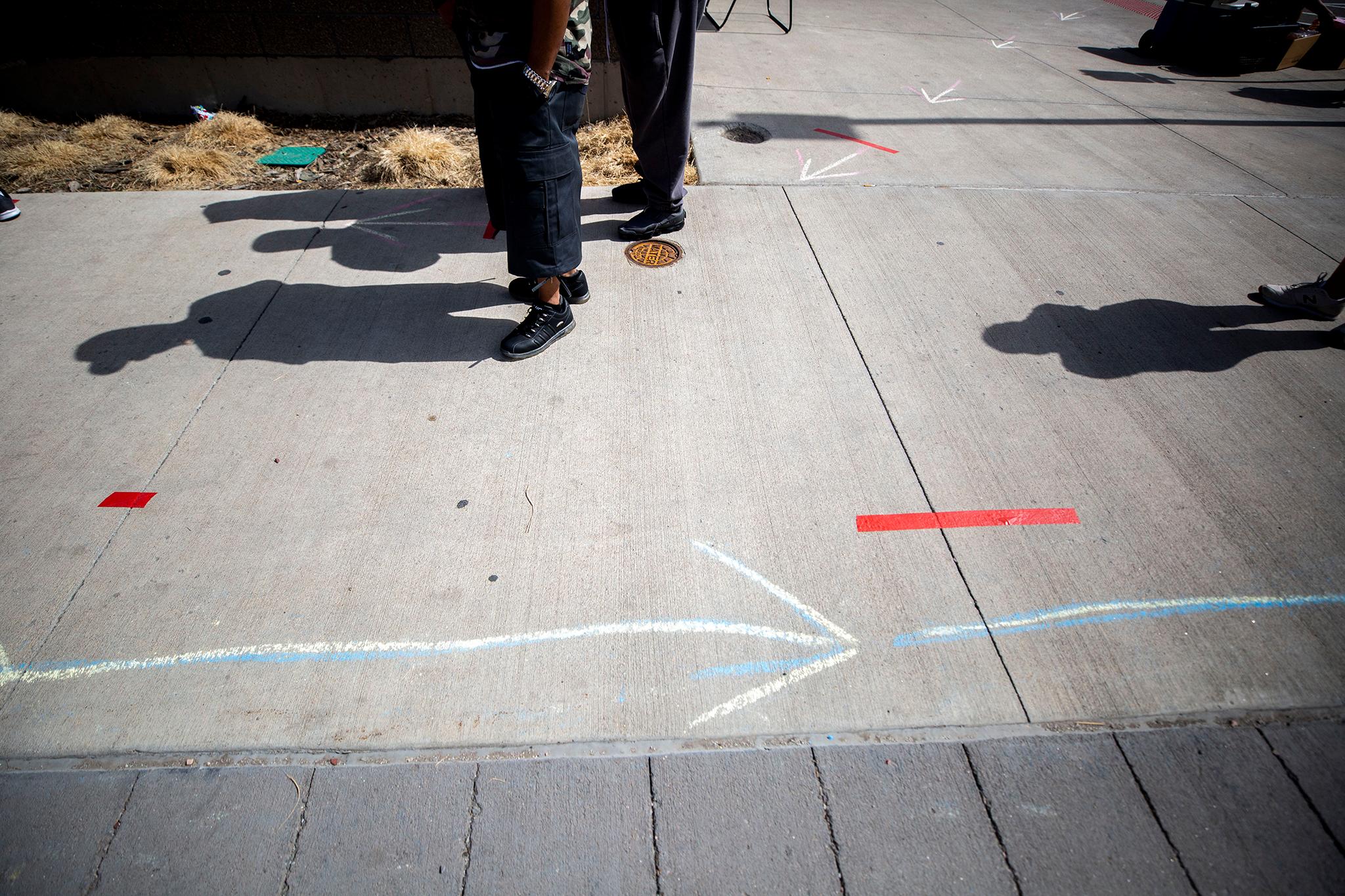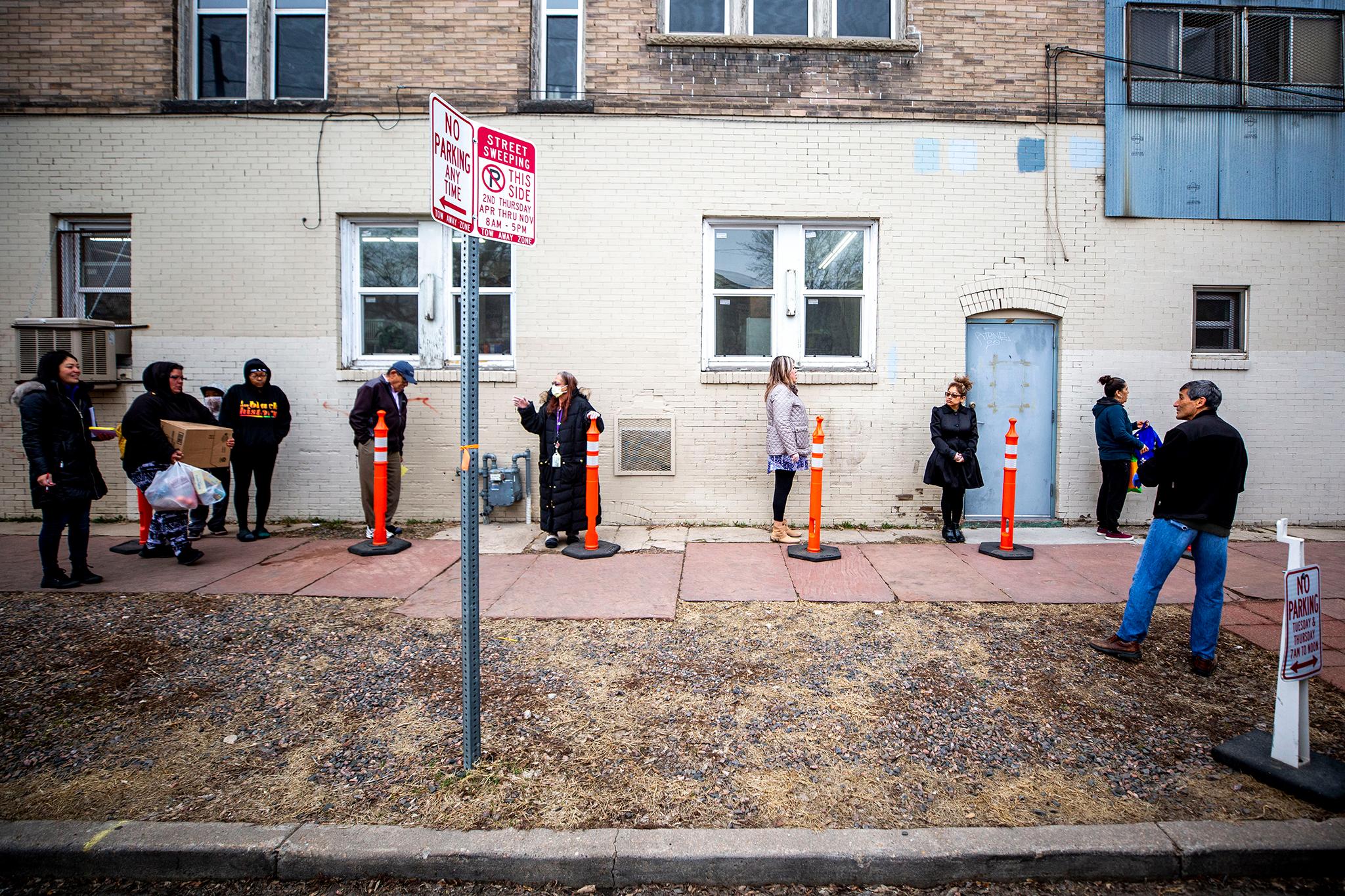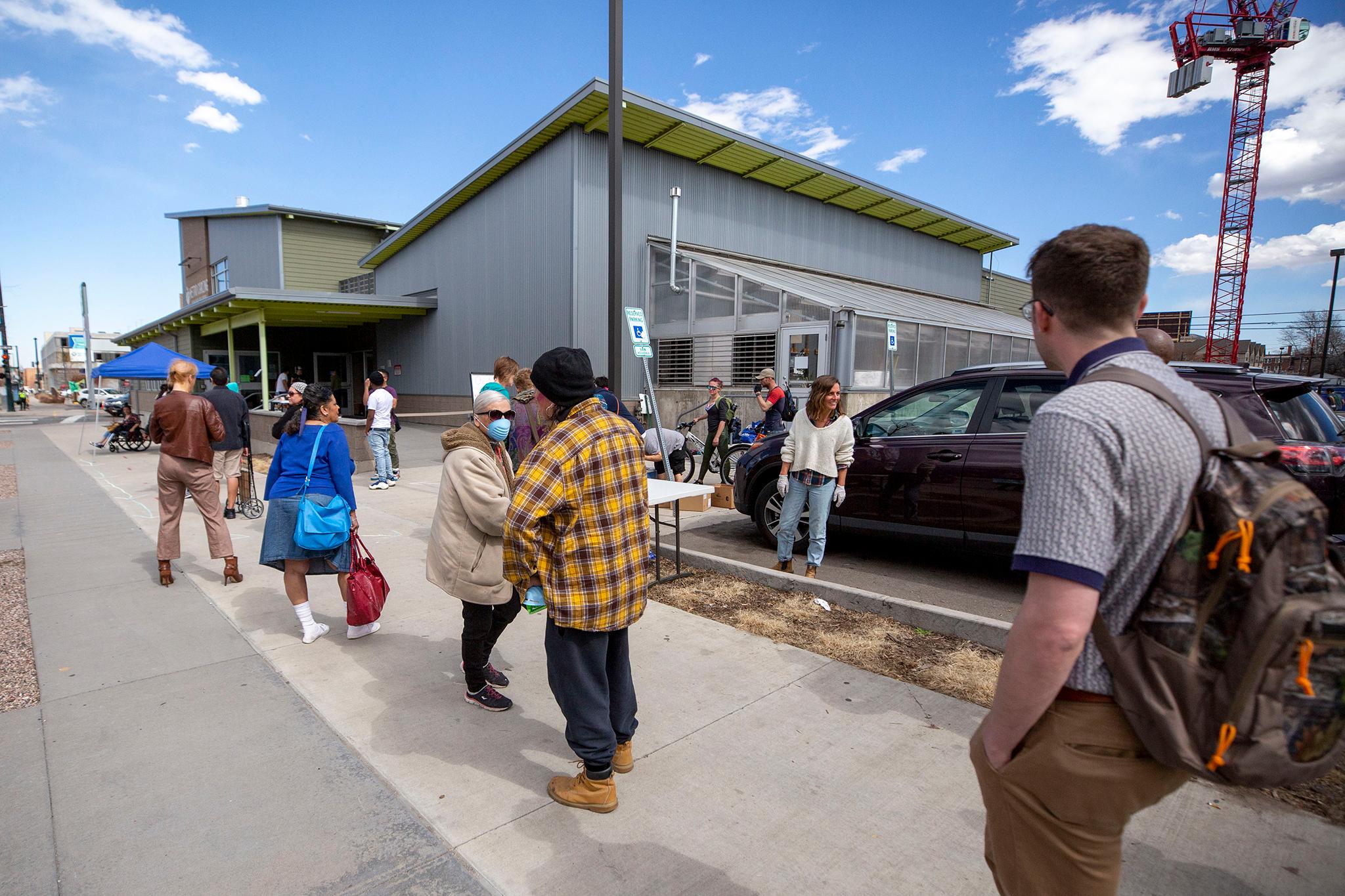Metro Caring is taking its food aid program outside to try to stop the spread of the new coronavirus.
Many food pantries had adopted a free grocery story model in which people roam the shelves choosing their own items. Metro Caring's pantry is as big, and with a selection as varied, as an actual grocery store. The nonprofit distributes millions of pounds of food every year from its fresh-food pantry at 1100 East 18th Ave. in City Park West.
On Monday, Metro Caring's building was closed to everyone but staff and a few volunteers to follow advice from health experts that reducing person-to-person contact can help stop the spread of the coronavirus.
Since then, instead of heading inside to "shop" for themselves, people have been waiting out front to collect boxes of pre-chosen food items. Lines drawn on the sidewalk indicate where people should stand to avoid getting too close to one another.
The change in procedure, which also has been adopted by other pantries, has allowed Metro Caring to continuing serving around 100 households every day, said spokeswoman Judith Ackerman.
Teva Sienicki, Metro Caring's CEO, said in a statement that her organization "can positively impact our community, even during social distancing."


It and other pantries face other challenges. As those with means stock up amid the uncertainty created by the coronavirus outbreak, less food is available for donation from stores and distributors that have sent their surplus to pantries. Volunteers and some staff have had to stop working at pantries because they are older or are, for other reasons, seen as at risk from the worst effects of COVID-19, the disease caused by the new coronavirus.
Sienicki said Metro Caring was in need of financial contributions to buy items such as food and cleaning supplies and to pay staff to replace lost volunteers and workers. She's also seeking volunteers who are under 60 years old and not in a high-risk category.













